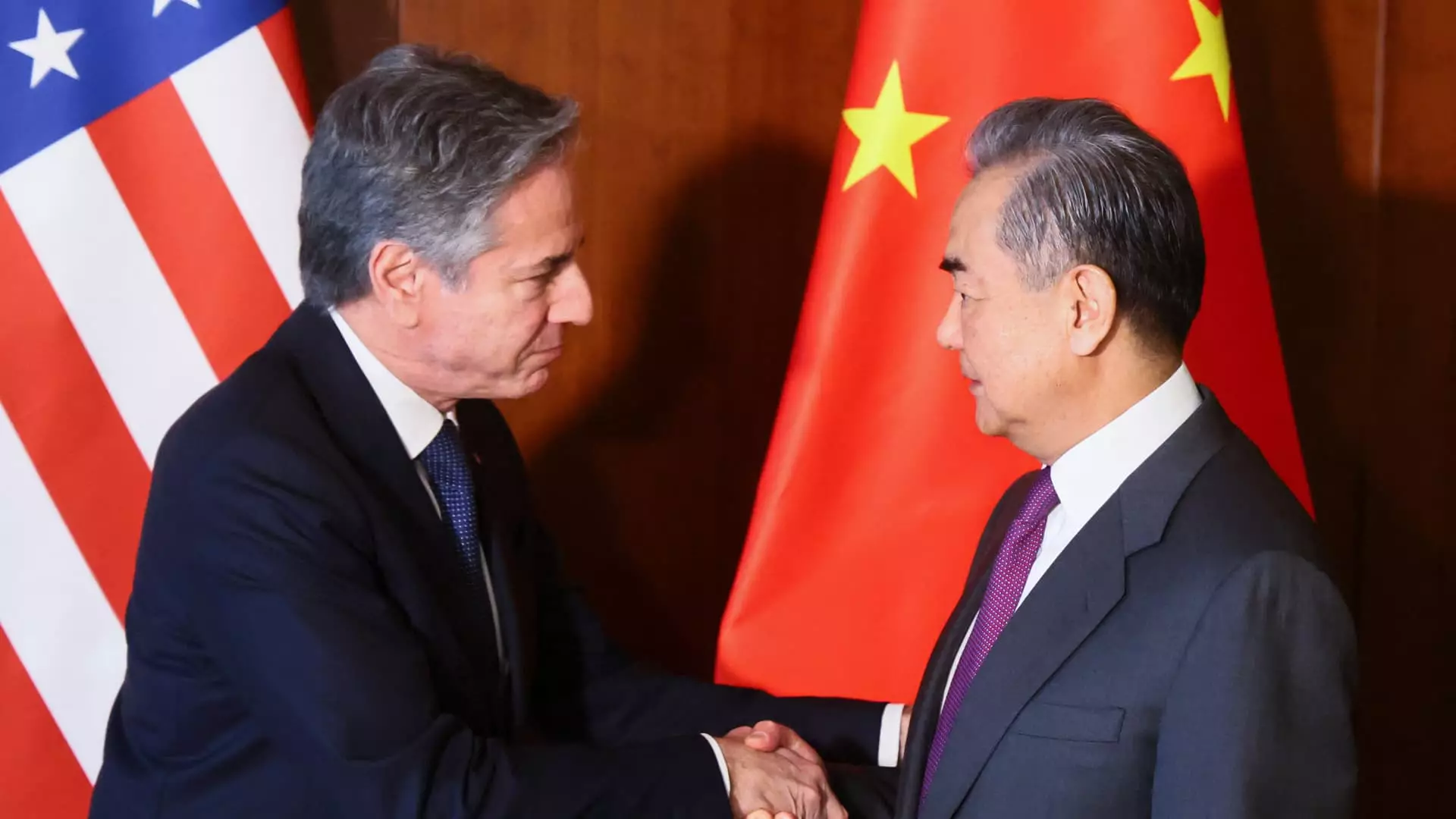In a recent meeting between China’s Foreign Minister Wang Yi and U.S. Secretary of State Antony Blinken, Wang made a strong case for lifting sanctions on Chinese companies and individuals. He emphasized that attempts to de-couple from China would ultimately harm the United States more than it would benefit them. The ongoing sanctions imposed by the United States on Chinese entities have been a point of contention, with China arguing that they impede on their legitimate development rights.
Sino-U.S. relations have been strained in recent years, with both countries engaging in a tit-for-tat exchange of sanctions and trade restrictions. Despite recent efforts to improve communication channels, there are still many points of friction between the two global superpowers. The Biden administration’s ban on certain technologies to Chinese companies has been met with accusations from China of “weaponising” economic and trade issues.
Wang Yi warned against the idea of “de-China” and urged against building barriers and seeking to decouple from China. He emphasized that such actions would only backfire on the United States itself. The exchange between Wang and Blinken was described as frank, substantial, and constructive, with both sides discussing regional issues such as the Ukraine crisis and the Korean Peninsula.
One of the key issues discussed was the status of Taiwan, with Wang reiterating China’s stance on the one-China principle. China considers Taiwan as part of its territory, while Taiwan strongly opposes China’s sovereignty claims and asserts its right to determine its own future. The United States, while not supporting Taiwan’s independence, maintains unofficial relations with the island and provides it with crucial support.
Despite the challenges, there have been some positive developments in Sino-U.S. relations. Talks between Chinese President Xi Jinping and President Joe Biden at the Asia-Pacific Economic Cooperation summit resulted in agreements on various issues including fentanyl, military communications, and artificial intelligence. Both countries have made efforts to enhance cooperation through working groups and financial dialogues.
Moving forward, it is crucial for both China and the United States to continue engaging in dialogue at all levels. Blinken and Wang agreed to maintain exchanges in various areas and to uphold communication channels. This is essential in addressing differences, resolving disputes, and building a foundation for more stable and productive relations between the two nations.
Finding a balance in Sino-U.S. relations is essential for global stability and prosperity. By lifting sanctions, refraining from unilateral actions, and engaging in constructive dialogue, both countries can work towards fostering a more cooperative relationship that benefits not only themselves but the international community as a whole.

Leave a Reply